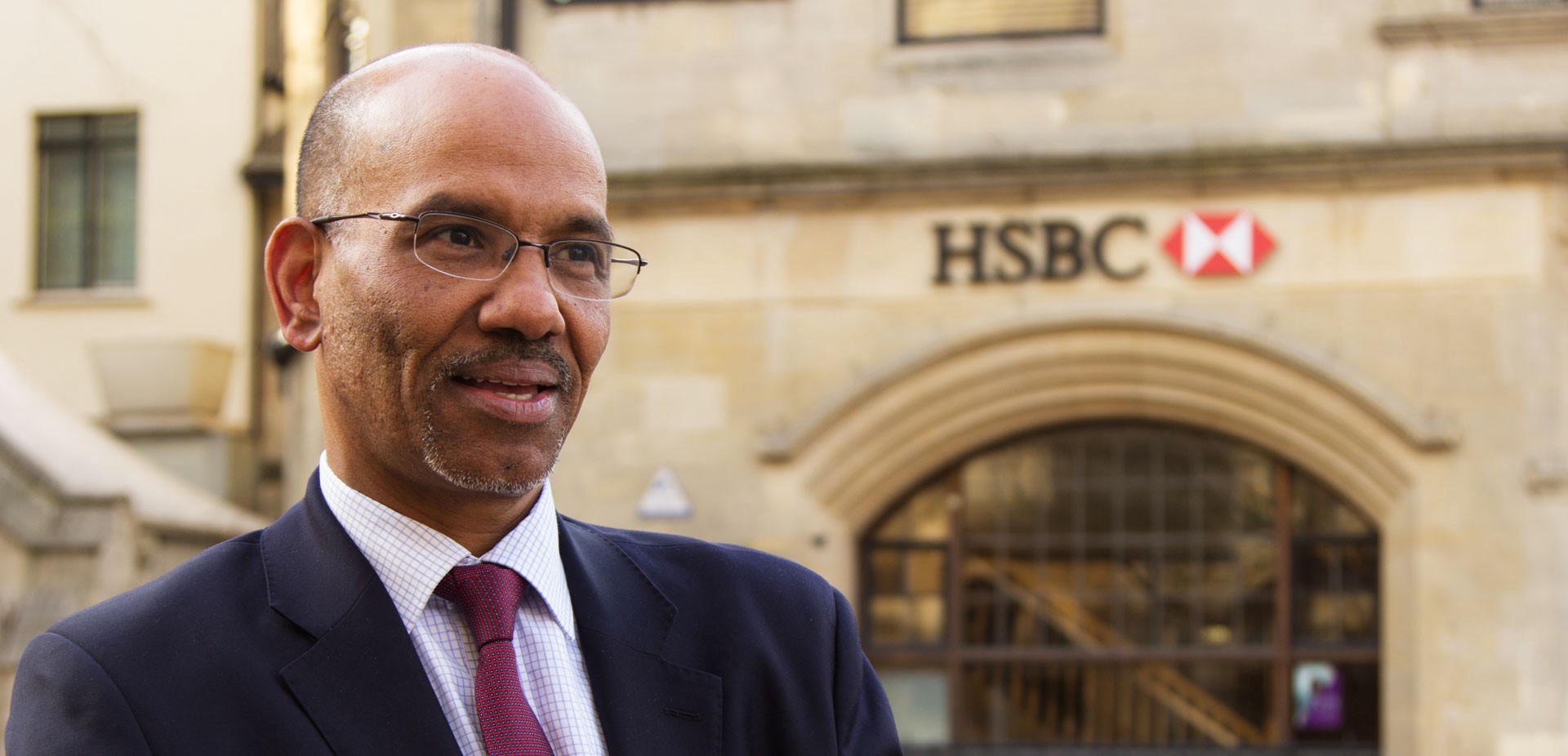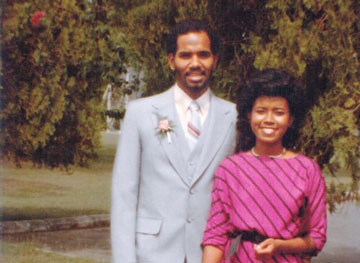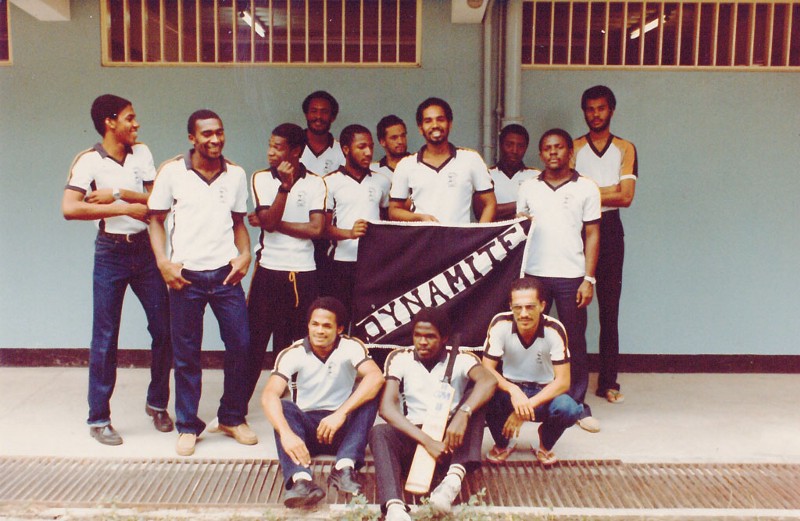
Alan Smith: values for money
Christian principles give a great return on investment, according to a banker who has risen to the top of the financial world.
When Alan Smith tells Christian friends that he works for a bank, there is a common response. “They want to lay hands on me and pray for my soul!” he laughs.
It is nearly a decade since the 2008 banking crisis, and bankers are still regarded with deep suspicion. Many blame their recklessness for the ravages of the global financial crisis. And Alan, who comes from Barbados in the West Indies, is a major player. After 22 years with HSBC — one of the world’s largest banks — he has risen to Global Head of Risk Strategy and Senior Executive Officer, Group Risk in HSBC’s 17,000-person critical risk function.
Yet despite his high-flying career, Alan, 54, is a long way from the stereotypical banker pilloried in the press. He became a Christian at university in Jamaica and is thankful to be in a position to use the values he learned as a student to help address what he thinks is the most significant challenge facing our society today.
For him, banking is not just a mechanism for making more money or for making some people very rich. At its heart, he says, a healthy financial sector is about helping people provide for their families. And the key insight he has learned over years of living out his faith in the business world, is that doing banking the “right” way actually creates the most successful business.
“The most important thing to learn is that ‘values drive value’,” he says. “Banking done properly helps the economy grow, which helps people get jobs and put a roof over their heads. You have to be driven by these values of wanting growth to be equitable and done in a sustainable way. If you do it the other way around, that’s when we have all the problems we have.”
As Global Head of Risk Strategy, Alan’s job is to help define his bank’s approach to risk. For a bank, managing risk is how it makes money, but also how it loses money. The most common risk, for example, is whether the person you have lent money to will be able to pay it back.
His job may be highly technical but the words that crop up when he talks about banking are straightforward Christian values: accountability, sustainability, and fairness. He points out that accountancy was developed by a monk and that it originally related to “accountability” — adding things up to see how you had been a good steward of what God had given you. And he jokes that in the parable of the talents, Jesus berates the man for not giving his money to the bankers.
Alan is also an unashamed fan of his subject matter. “I love money!” he says. “I find it fascinating. Finance gives insight into the human condition. Money or the lack thereof can do a lot for better or for worse. And for better or for worse, money does make the world go round.”
HSBC, which employs 240,000 people worldwide and operates in 70 countries, works in emerging markets as well as developed economies. Alan says that as economies grow you can see tens of millions of people coming out of poverty. This makes it even more painful, of course, when a worldwide financial crisis stops this progress. But Alan says the silver lining from the crash is the new recognition that banking needs to concentrate on “values” in order to prevent this happening again.
“The crash has shone the spotlight on values completely,” he says. “The failure of values is part of the reason for the financial crisis, as much as the effect of the markets. So it comes back to what you believe in and having the right values around that.”
Alan’s values are shaped by his Christian faith. He was born in the Bahamas but brought up in Barbados by his father, a headteacher, and his mother who came from Trinidad. His great-great grandfather on his father’s side was a freed slave of African descent.
His parents were not Christians but did go to church, so Alan remembers the incense, robes, hymns, and prayer book of a high Anglican childhood. “Maybe it’s my age, but I actually think it was quite good,” he says. “I knew there was something up there that I had to grapple with and make a decision about.”

He studied accountancy at the University of West Indies and spent his first year on the Barbados campus where he met his future wife, Penny. She was already a Christian and when he moved to Jamaica for his next two years of study, she urged him to go and visit her mentor, Bruce Fletcher, who had started a church there. So Alan went to his church, attended UCCF Jamaica meetings (also at Penny’s behest) and was brought to a point of decision in October 1982. “It wasn’t at any big altar call,” he says. “I just thought ‘if you really are God, I need to make a decision’ — which I did in my room on my own in campus.”
This room was in an all-male university residence that had a reputation for wild living, but Alan says the opposition he instantly faced helped confirm his decision. It was not seen as a “manly” thing to be a Christian, so he had to take a stand for what he believed.

Despite being such a new Christian, Alan was quickly thrown into leadership at UCCF Jamaica, planning programmes, organising outreach events and evangelism. He also got the job of trying to improve attendance at the early-morning prayer meetings. “Having to wake up early and knock on people’s doors showed me that leadership is not always glamorous,” he says. “There is a lot of heavy lifting.”
Alan says the leadership experience was great preparation for his current career. “As much as IFES gave me very strong experiences around my faith, it also gave me experience of running things,” he says. “It showed me that as a leader you are responsible and accountable. It’s a privilege but a scary responsibility to be doing things that affect people’s experiences of God. What you say, what you do, the example you set, can have an impact on others. Getting that at such an early stage was really invaluable — particularly given the industry I am in now.”
His time at UCCF Jamaica also helped Alan think through the balance between his faith and his vocation. It helped him realise that his “ministry” was wherever he was — there wasn’t one part of his life marked ‘faith’ and a separate compartment for ‘study’. “But there will always be tension,” he says. “There is an exam coming up and a big prayer meeting — how do you balance that? Those lessons and that framework for making decisions continue for your whole life, especially if your career is not explicitly within the ministry.”
Alan moved to the UK in 1985 after winning a Commonwealth scholarship to study for an MBA. After eight years with professional services company KPMG he joined HSBC in 1994. He and Penny now live and work in London and have a son who is studying in Canada. Alan uses his financial acumen in a voluntary capacity on the Finance Committee of IFES, and is also a keen cricketer and coach (he made the national junior team in Barbados).
Looking back, Alan considers his time in UCCF Jamaica as a defining experience, and one that set deep foundations for the rest of his life. But he is also struck at how unconventionally he started off. “It’s an interesting thing about how God works, and his grace,” he says. “When I met Penny, she was a Christian and I wasn’t — which is theoretically a relationship no-no. And then having become a Christian in October, UCCF Jamaica threw me into leadership within a couple of months, which is also theoretically a no-no. But it was the most amazing experience. God works in mysterious ways.”
This article first appeared in INFLUENCE: the impact of IFES in the lives of its graduates, a collection of stories from across the globe that demonstrate the long-term impact of IFES student ministry. A revised and updated version of this book will be released later in the year.
